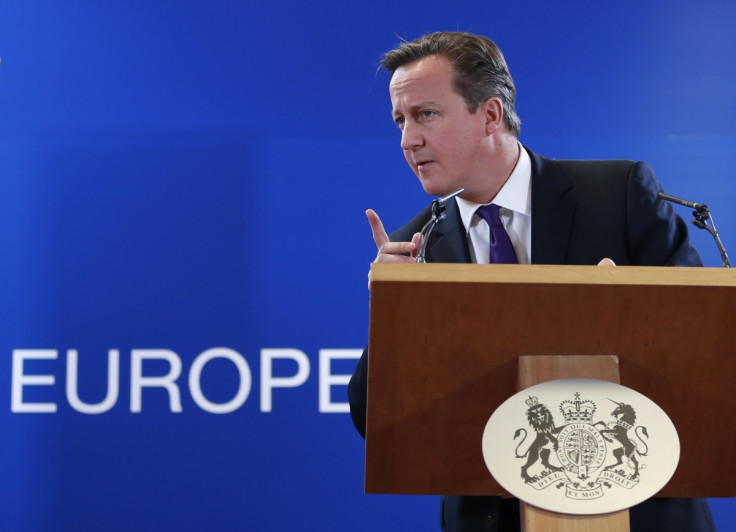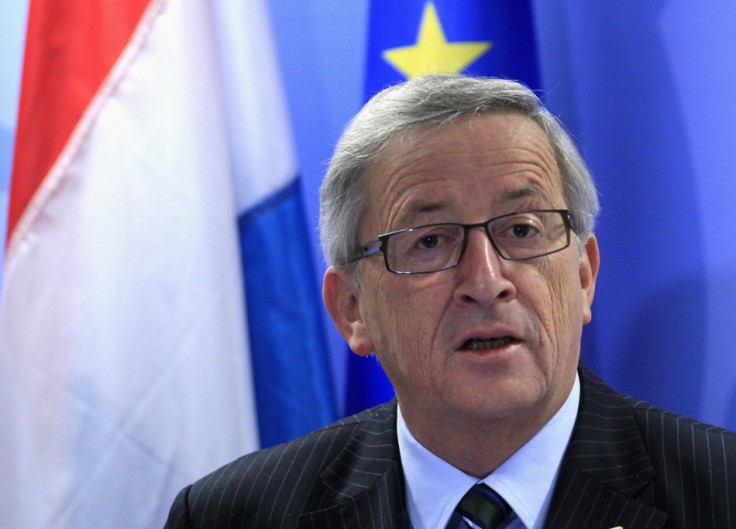Cameron Scrambles to Stop Federalist Winning Top EU Job After Polls 'Earthquake'

David Cameron has staked a huge amount of political capital on his attempt to block the appointment of an arch-federalist to the job of European president.
The prime minister arrived in Brussels for a post-elections dinner declaring the EU was "too big and too bossy" and demanding changes at the top of the powerful Commission, viewed by voters as undemocratic and a symbol of all they see as being wrong with the EU.
He told the other continental leaders that, just when there had been an explosion of voter anger over the EU, it would be ludicrous and hopelessly out-of-touch if they now appointed a federalist who believes in creating a United States of Europe to the top job.
He is determined to stop that candidate - former Luxembourg prime minister Jean-Claude Juncker who, as a member of the largest centre-right grouping in the new Brussels parliament, looked like being shooed into the job as President of the Commission.
"We need an approach that recognises that Brussels has got too big, too bossy, too interfering. We need more for nation-states. It should be nation-states wherever possible and Europe only where necessary.
"Of course we need people running these organisations that really understand that and can build a Europe that is about openness, competitiveness and flexibility, not about the past," Cameron said.

At the moment he is facing a significant battle with support only from Hungary and Sweden. The key player, Germany's Angela Merkel has insisted only that Juncker is "our leading candidate" for the job, which Cameron believes may leave her open to persuasion.
As well as expressing his view at the dinner, Cameron has also been ringing around EU leaders in an attempt to drum up opposition to Juncker.
If he succeeds and manages to secure the appointment of a candidate more in line with his reforming agenda, such as Ireland's Enda Kenny, it will represent a significant victory. But is will also mean he has spent much of his political capital.
It would risk stacking up resentment from other leaders and may mean the UK faced problems in other areas, perhaps when it came to handing out the all-important portfolios in the new Brussels Commission.
While most voters probably have no idea who the European Commission President is, it is a hugely important post as the Commission is the only institution that can instigate new EU laws.
The president is the individual who speaks for the EU on the international stage and also has the power to re-shuffle and even sack members of the Commission - the equivalent of the cabinet - from other states.
The post is often cited as a clear example of the allegedly undemocratic nature of the EU. The president is not elected but is chosen by the national leaders often after secretive deals and trade-offs.
The appointment is supposed to "take account" of the results of the EU elections and has to be confirmed by the European parliament but, in practice, is usually rubber-stamped after the national leaders have finished their horse trading.
Cameron has a little time to pursue his campaign, with a decision not likely before the end of June.
If he succeeds he will be able to chalk it up as a victory but, after so publicly voicing his opposition, defeat would be a major setback.
It would be seized on by Labour to claim he had proved what little influence the UK now had in Europe, because of the government's increasingly Eurosceptic stance.
© Copyright IBTimes 2025. All rights reserved.






















